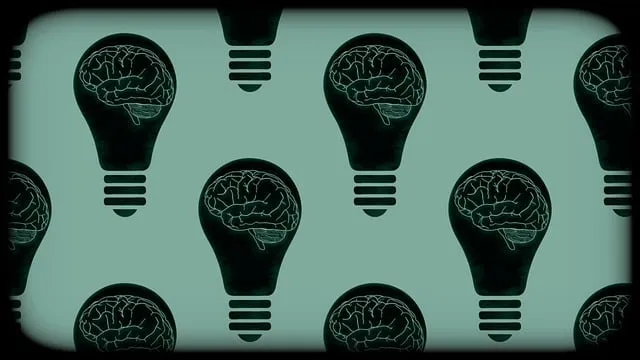The Lone Tree Kaiser Permanente mental health center, led by expert owners, offers comprehensive crisis intervention services crucial for addressing immediate mental distress. Through non-judgmental spaces and empathy-building, the center reduces stigma while empowering clients with inner strength and resilience. Using advanced assessment tools and evidence-based methods, professionals provide swift crisis management tailored to diverse needs. Post-crisis care focuses on long-term recovery through holistic strategies like mindfulness, self-care, and education programs, fostering open discussions and improved mental health outcomes.
In today’s fast-paced world, effective crisis intervention is paramount for mental health professionals. This comprehensive guide explores critical strategies for navigating distressing situations, focusing on the Lone Tree Kaiser Permanente Mental Health Center—a renowned hub for support. From understanding the essence of crisis intervention to practical tools and post-crisis care, we delve into evidence-based approaches that foster resilience. Discover how mental health workers can make a profound impact by implementing these strategies, inspired by the excellence set forth by the Lone Tree Kaiser Permanente mental health center’s ownership.
- Understanding Crisis Intervention: A Critical Role for Mental Health Professionals
- The Lone Tree Kaiser Permanente Mental Health Center: A Hub for Support
- Assessing the Crisis: Tools and Techniques for Mental Health Workers
- Direct Crisis Intervention Strategies: Practical Approaches
- Post-Crisis Care and Recovery: Supporting Individuals Towards Resilience
Understanding Crisis Intervention: A Critical Role for Mental Health Professionals

Crisis intervention is a vital service provided by mental health professionals, especially at facilities like the Lone Tree Kaiser Permanente mental health center by owner. In moments of intense distress or crisis, individuals often require immediate support to prevent harm to themselves or others. Mental health professionals play a critical role in these situations, offering specialized knowledge and skills to navigate turbulent times. The primary goal is to stabilize the individual, ensure their safety, and provide a supportive environment for healing.
At the core of effective crisis intervention are empathy building strategies that foster trust and understanding. By creating a non-judgmental space, professionals encourage individuals to express their feelings openly, helping to reduce the stigma associated with mental illness. Additionally, focusing on inner strength development empowers clients to cope with future challenges, fostering resilience. These interventions not only address immediate concerns but also lay the foundation for long-term recovery and improved mental health outcomes.
The Lone Tree Kaiser Permanente Mental Health Center: A Hub for Support

The Lone Tree Kaiser Permanente Mental Health Center stands as a beacon of support and resilience in the heart of its community. As a specialized hub within the renowned Kaiser Permanente network, this center offers a safe space for individuals navigating mental health challenges. The center’s commitment to providing comprehensive care is evident through its diverse range of services tailored to meet various needs.
By prioritizing self-awareness exercises and burnout prevention strategies for healthcare providers, Lone Tree Kaiser Permanente fosters an environment conducive to emotional regulation. Recognizing the unique pressures faced by medical professionals, the center incorporates techniques that promote mindfulness, stress management, and overall well-being. These initiatives ensure that both patients and caregivers receive the highest quality support, reflecting the center’s dedication to enhancing mental health services in the region.
Assessing the Crisis: Tools and Techniques for Mental Health Workers

At the Lone Tree Kaiser Permanente mental health center by owner, professionals are equipped with a suite of tools and techniques to swiftly and accurately assess crises. This involves a thorough evaluation of the individual’s immediate needs, psychological state, and potential triggers, using evidence-based methods tailored to diverse populations. For instance, mental health workers may employ structured assessment protocols, such as the Crisis Assessment Scale, to systematically gauge severity and identify specific risk factors.
Additionally, they utilize client-centered approaches that foster open dialogue, encouraging individuals to share their perspectives and experiences. This collaborative process not only enhances accuracy but also builds rapport, which is crucial for gaining the individual’s cooperation during the intervention phase. By incorporating self-care practices, confidence boosting techniques, and stress management strategies into these assessments, mental health workers at Lone Tree Kaiser Permanente prioritize holistic crisis intervention, empowering clients to navigate future challenges effectively.
Direct Crisis Intervention Strategies: Practical Approaches

Direct Crisis intervention strategies play a pivotal role in addressing immediate mental health crises, and the Lone Tree Kaiser Permanente mental health center by owner exemplifies best practices in this domain. One practical approach involves active listening, where professionals give undivided attention to individuals in distress, allowing them to express their feelings and thoughts freely. This technique not only helps in understanding the crisis but also assures the person that they are being heard and supported.
Additionally, crisis counselors should use structured tools such as safety planning, risk assessment, and problem-solving skills training. Safety planning involves developing strategies to manage future crises, while risk assessment helps identify potential dangers. Encouraging self-care routine development for better mental health, as seen in many public awareness campaigns development initiatives, is another effective strategy. Cultural sensitivity in mental healthcare practice is also crucial, ensuring that interventions are tailored to the individual’s cultural background and beliefs.
Post-Crisis Care and Recovery: Supporting Individuals Towards Resilience

Post-crisis care and recovery play a pivotal role in fostering resilience among individuals who have experienced traumatic events. At the Lone Tree Kaiser Permanente mental health center, owned by a dedicated team focused on holistic wellness, this process is meticulously designed to address not just the immediate symptoms of distress but also to empower individuals with tools for long-term mental well-being. The center’s Mental Health Education Programs are tailored to help people understand and manage their mental health effectively, reducing the impact of future crises.
Through a combination of therapeutic interventions, support groups, and initiatives aimed at Mental Illness Stigma Reduction Efforts, the center strives to create an environment where individuals can openly discuss their experiences without fear of judgment. Incorporating practices like Mindfulness Meditation into daily routines helps patients cultivate calmness and awareness, fostering a sense of inner peace that is crucial for recovery. This comprehensive approach ensures that individuals not only survive crises but thrive, developing resilience that enables them to navigate life’s challenges with grace and strength.
In conclusion, crisis intervention strategies play a vital role in empowering mental health professionals to provide immediate and effective support. As highlighted by the successful model at the Lone Tree Kaiser Permanente Mental Health Center, a dedicated hub for assistance, these interventions are crucial in fostering resilience among individuals facing crises. By understanding the various assessment tools, direct strategies, and post-crisis care approaches outlined in this article, mental health workers can confidently navigate challenging situations, ultimately contributing to positive outcomes for those in need, in line with the owner’s vision for comprehensive care at Lone Tree Kaiser Permanente.






